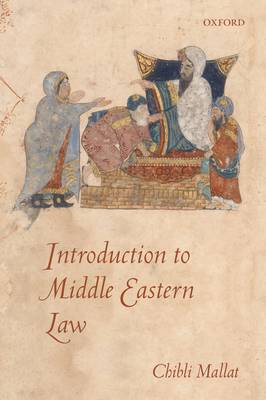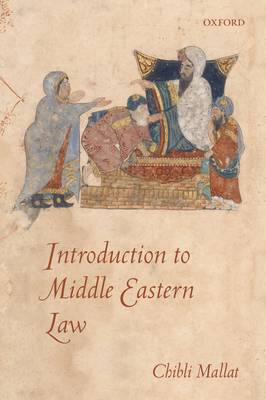
- Afhalen na 1 uur in een winkel met voorraad
- Gratis thuislevering in België vanaf € 30
- Ruim aanbod met 7 miljoen producten
- Afhalen na 1 uur in een winkel met voorraad
- Gratis thuislevering in België vanaf € 30
- Ruim aanbod met 7 miljoen producten
Zoeken
Omschrijving
This book provides an introduction to the laws of the Middle East, defining the contours of a field of study that deserves to be called 'Middle Eastern law'. It introduces Middle Eastern law as a reflection of legal styles, many of which are shared by Islamic law and the laws of Christian and Jewish Near Eastern communities. It offers a detailed survey of the foundations of Middle Eastern Law, using court archives and an array of legal sources from the earliest records of Hammurabi to the massive compendia of law in the Islamic classical age through to the latest decisions of Middle Eastern high courts. It focuses on the way legislators and courts conceive of law and apply it in the Middle East. It builds on the author's extensive legal practice, with the aim of introducing the Middle Eastern law's main sources and concepts in a manner accessible to non-specialist legal scholars and practitioners alike. The book begins with an exploration of the depth and variety of Middle Eastern law, introducing the concepts of shari'a, fiqh, and qanun, (which all mean 'law'), and dwelling on Islamic law as the 'common law' of the Middle East. It provides a historical introduction to the contemporary Middle East, exploring political systems, constitutional law, judicial review, the laws of tort and obligations, commercial law (including Islamic banking, company law, capital markets, and commercial arbitration); and examines legislative reform in family law and the position of women in the legal system. The author considers the interaction between Islamic and Western laws and includes a bibliography designed for further research into the jurisdictions and themes explored throughout the book.
Specificaties
Betrokkenen
- Auteur(s):
- Uitgeverij:
Inhoud
- Aantal bladzijden:
- 500
- Taal:
- Engels
Eigenschappen
- Productcode (EAN):
- 9780199563876
- Verschijningsdatum:
- 1/05/2009
- Uitvoering:
- Paperback
- Formaat:
- Trade paperback (VS)
- Afmetingen:
- 234 mm x 155 mm
- Gewicht:
- 759 g

Alleen bij Standaard Boekhandel
+ 159 punten op je klantenkaart van Standaard Boekhandel
Beoordelingen
We publiceren alleen reviews die voldoen aan de voorwaarden voor reviews. Bekijk onze voorwaarden voor reviews.











